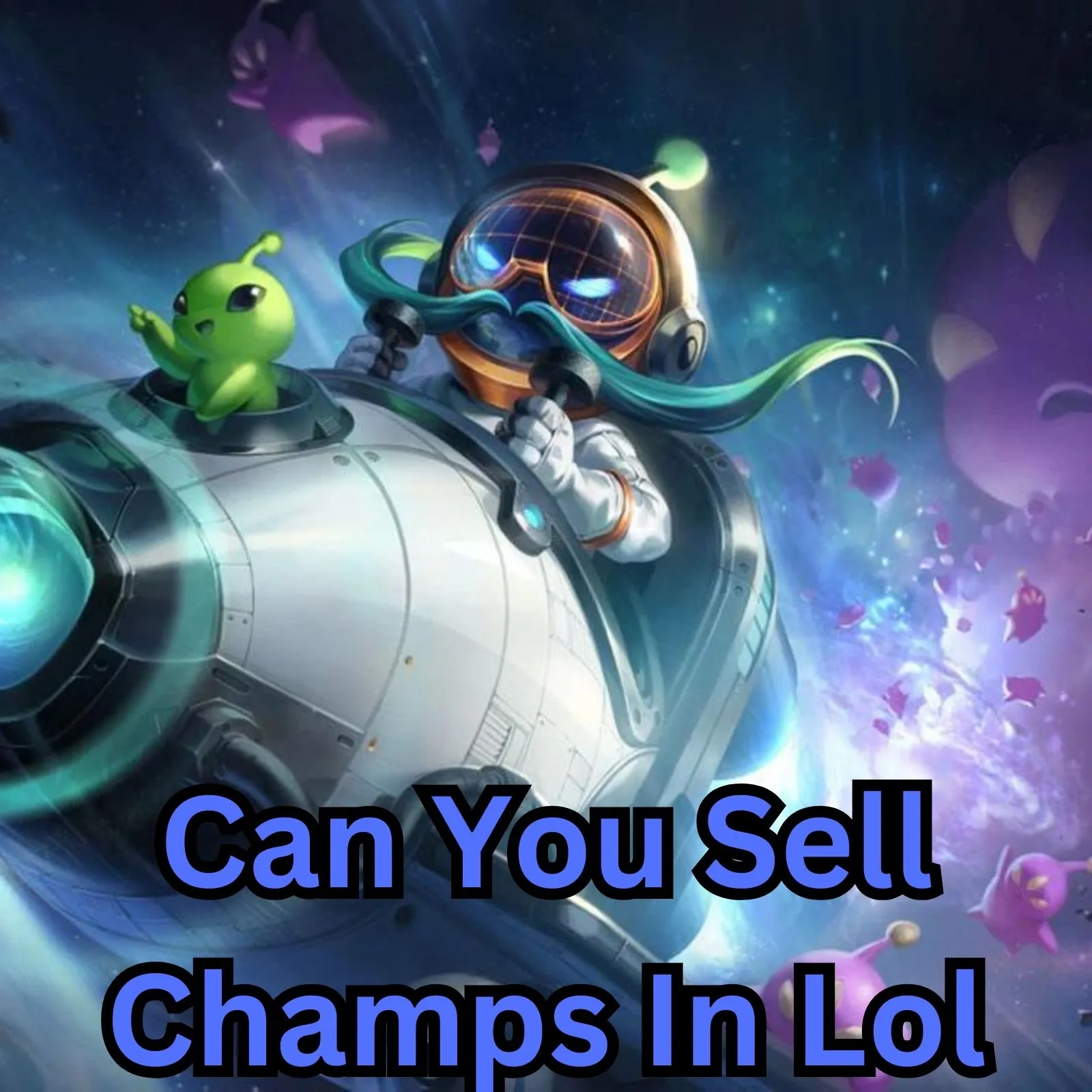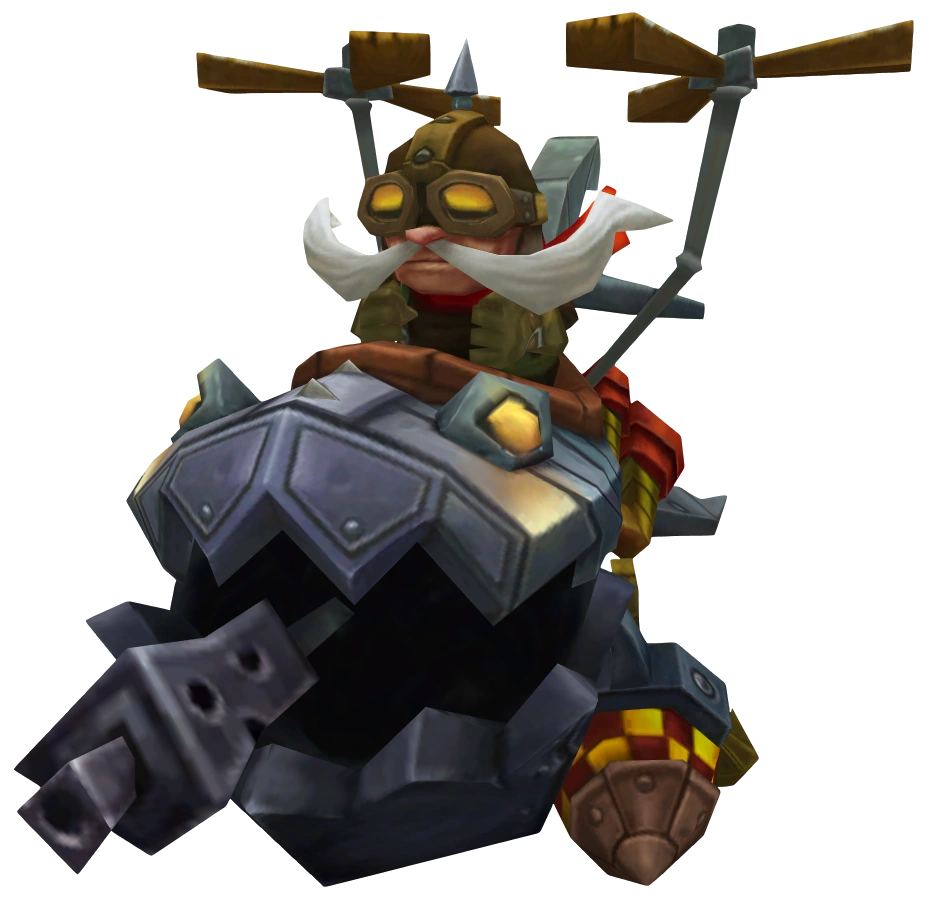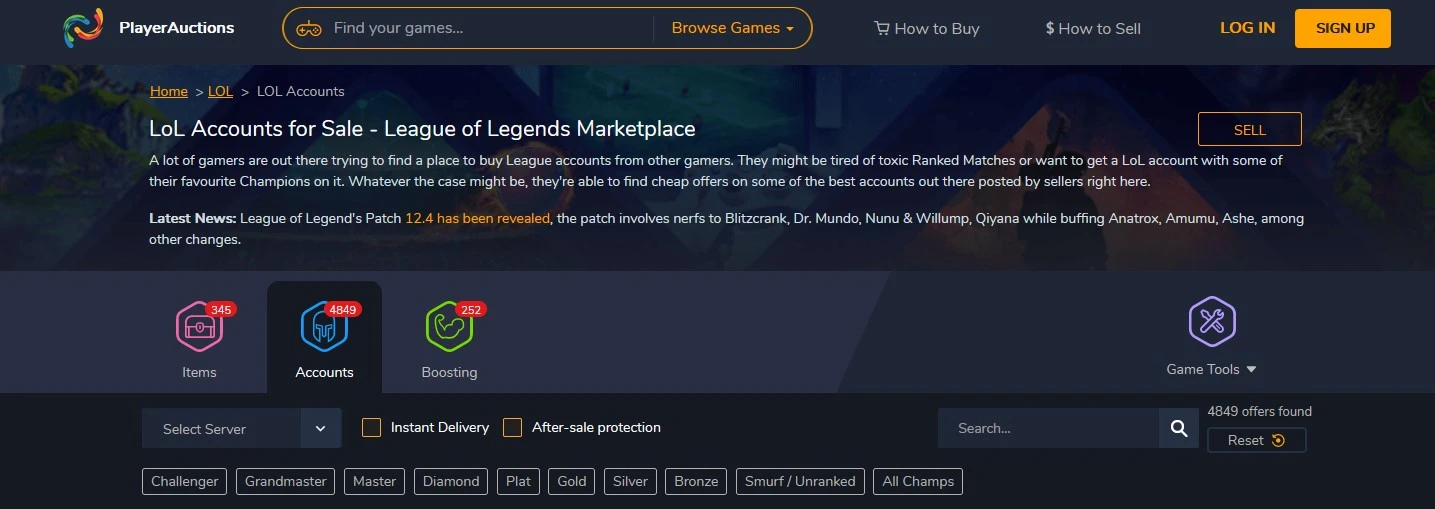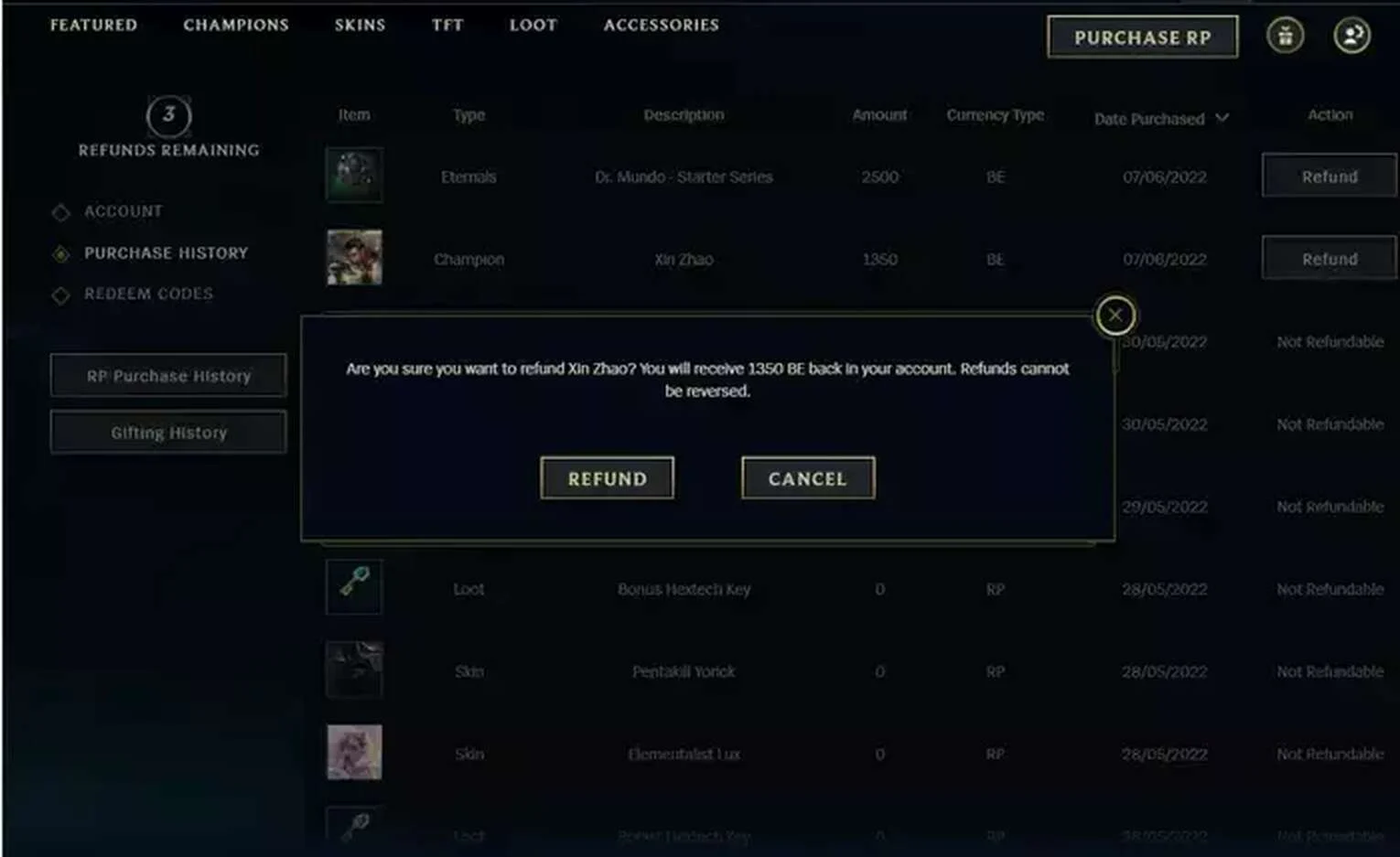
Introduction
Exploring the realm of League of Legends, it becomes compelling to note that, contrary to popular inquiries, selling champions is a practice not permissible within the gaming interface of this trendsetting MOBA.
When delving further into the subject, one crucial factor to remember is that Riot Games, the developer of League of Legends (LoL), designed this MOBA (Multiplayer Online Battle Arena) with a primary emphasis on players acquiring skills and knowledge to better manage their chosen champions. LoL’s premise isn’t hinged on an economy where players buy, trade, or sell champions regularly.
Instead, our focus within this vast universe should be centered around accumulating as many characters as possible over time, learning their unique skills and traits, and strategically employing their capabilities depending on the context of each battle. In other words, the value of these characters lies more in how they’re used rather than their potential resale value.
Yet, there is an alternative for getting some form of return on unwanted champions: Disenchanting champion shards into Blue Essence. By accessing your Loot tab, you’ll see an array of different shards you’ve acquired through playing. Disenchanting these shards can provide a certain amount of Blue Essence, which essentially serves as the currency for purchasing new champions. However, it’s pertinent to note that enchantment doesn’t give back the totality of its original worth, only a fraction. Hence, careful consideration should underpin your decision whether to disenchant a shard.
As professional LoL player Søren “Bjergsen” Bjerg claimed, “It’s all about finding champions you love and sticking to them.” So instead of focusing on selling champions, place your attention on developing skills, understanding match-ups, and enhancing your strategic acumen in order to climb the ranks and enjoy everything League of Legends has to offer.
Can you Sell Champions in LoL
Selling champions in League of Legends (LoL) is a topic that sparks curiosity among many players, especially new ones. While the ideal answer to “Can You Sell Champions In LoL?” would be yes or no, the scenario is actually far more complex. In essence, selling champ in LoL is not a feature supported by the game in its traditional sense.
League of Legends is designed as a free-to-play MOBA (Multiplayer Online Battle Arena). This design allows anyone to sign up and play for free. The monetization comes into play with the additional optional features, which include purchasing in-game currencies such as RP (Riot Points) to unlock skins, champions, and other unique elements.
The acquired champions through either BE (Blue Essence, obtainable by playing games) or RP become tied to your account permanently and cannot be sold in the same way an item can be sold on e-commerce platforms. Any trade or sale outside of the official channels provided within the game is against Riot’s Terms of Service.
“The ownership rules are clear: buying, selling, trading or otherwise transferring accounts or any individual items(ballparkguide) on them, including champions, is strictly embargoed,” said Marc “Tryndamere” Merrill, co-founder of Riot Games.
| Champion management… | |
| Riot Support | No champion sale feature |
| PBE (Public Beta Environment) | Test usage before unlocking |
Making the mistake of purchasing a champion you find unenjoyable can feel frustrating. Adequate research and use of resources like Riot’s PBE (Public Beta Environment), where you can test out champions before unlocking them on your primary account, can help prevent such regrets.
Hypothetically, should Riot ever implement a sellback or trade-in system in the future, it could create an exciting environment allowing players more choice and flexibility in managing their champion pool, potentially adding another dynamic to the game’s strategical elements.
Why We Can’t Sell Champions

From an analytical standpoint, let’s look at some of the reasons why Riot Games, the developers of LoL, may have decided against incorporating this feature. Here are some points to consider:
- Economic balance: In almost any game where trading or selling of items or characters becomes possible, economic imbalance arises. Players with more money can essentially “buy” their way to having the best champions, thus disrupting the competitive integrity of the game.
- Experiences not possessions: LoL emphasizes on players’ skill development rather than possessions. If champs could be sold, it could potentially damage player experience as the focus might shift from improving gameplay skills to acquiring more valuable champions for financial gain.
- Fraud prevention: Allowing trading or selling champions might open a floodgate of fraud related issues. Scams or black markets could arise around the selling of players, which would likely result in unsanctioned transactions outside of the game environment.
Interestingly, thinking of the feasibility perspective – if champs could be sold, it does raise several questions related to regulation (how the prices are set), how it affects the in-game economy, the potential impact on new players in the game as well how Riot Games would make profit from these transactions. Refer to the online platform Gamasutra for more insights on the digital economies impacts on gaming.
The ever-famous professional player Doublelift once said, “League isn’t about champion possession, it’s about champion mastery.” This encapsulates the core ethos of LoL. It’s not about what champs you own, but how well you can play them. So instead of hoping for an opportunity to sell champs, players should instead strive to improve their performance, achieve higher ranks and ultimately, reach their gaming goals.
Pros and Cons of this System
Pros
Fresh gaming experience.
Trading or selling champions can pave the path for a renewed exciting gaming experience by giving players a chance to experiment controlling new avatars. For instance, Seraphine‘s ability to maintain distance while dealing high area damage may intrigue those who played as Zed, a close-range assassin, infusing novelty into their play style..
Economical
This feature could have potentially saved us from spending a fortune over in-game purchases. If one acquires a champion like ‘Yasuo’ whom they find uninteresting to play with, this mechanism would have enabled them to sell it, ensuring an efficient usage of resources.
Cons
Risk of scamming
The League of Legends’ community has voiced concerns on several forums about scamming and fraudulent activities tied to account trading or any form of transaction. A well-known professional League of Legends player, Yiliang ‘Peter’ Peng (aka Doublelift), warned in an interview, “Never risk your hard-earned achievements for some quick gains that may cost you more than what you bargained for.”
Violating Terms of Service (ToS)
As per Riot Games’ Terms of Services, selling or buying accounts or champions is strictly prohibited. Breaching ToS could lead to permanent account suspension, eradicating all accomplishment and progress made.
| Overview of Pros and Cons | |
| Pros | Cons |
| Fresh gaming experience | Risk of scamming |
| Economical | Violating ToS |
Hence, despite the tempting prospects that selling or buying champs may present in League of Legends, it’s paramount to consider the legitimate and security implications before getting involved.
However, do note that this doesn’t mean one cannot exchange items within the boundaries defined by Riot games. One such method is trading through Hextech Crafting, allowing for an exchange of resources without dodging any Laws. Albeit limited, it’s a legal channel aligned with fair play principles.From a business point of view, the League of Legends (LoL) champions’ market is dynamic and multifaceted. LoL champions are developed and controlled by Riot Games, the parent company, and generally aren’t available for direct sales to players. This central control strategy eliminates the possibility for players to sell champions directly to others, ensuring that all transactions take place within the game platform, maintaining fairness and avoiding exploitation.
What About Account Selling and Buying
However, there is merit in discussing the marketing environment surrounding these champions – specifically in the areas of secondary account sales which occasionally occur – although these actions are not endorsed by Riot Games.
Though the direct sale of Champions is restricted, there is a parallel market where players sell their entire accounts, fully loaded with a spectrum of unlocked champions. While this practice is against Riot Games’ Terms of Use, it does exist and gives us insight into the perceived value of these Champions.
To contextualize this, we can broadly categorize the analysis on following key factors:
Demand and Supply: With over 150 champions and a player base of millions across the globe, there’s an inherent demand for specific champions. Players are often willing to invest to acquire them. Coupled with the release of newer champions, the desire to quickly unlock these figures often leads to increased account sales.
Economic Conditions: The economic conditions of the player-base also plays a role. For instance, regions with higher disposable income might see more willing buyers in the account market – because they can afford to bypass the grind of unlocking champions naturally.
Sociocultural Factors: The popularity of certain champions; influenced by factors like gameplay style, cultural appeal, champion storyline etc. can drive up interest in owning these characters.
Market Competition: In the larger context of online gaming, other popular multiplayer online games provide competition to LoL, impacting the player’s spending decision in-game or in the secondary market.
Technological innovations: As the gaming industry evolves and introduces new technologies like AR/VR, the popularity of champions can fluctuate, reflecting on their market price on these unofficial platforms.
While technically players cannot directly sell champions within the sanctioned terms of use provided by Riot Games, the indirect selling of accounts equipped with a array of champions points towards an active player-to-player transactional environment.
What is the reality of Account Buying and Selling in LoL

This discussion brings to mind a quote from famous ex-professional player, Søren “Bjergsen” Bjerg: “Play the game as much as you can—it’s the best way to improve. If you’re doing everything else perfectly but aren’t putting in the hours, none of that other stuff matters.” Players should be careful of transgressing the game’s rules by entering into unauthorized transactions, and remember that genuinely engaging with the game will enhance their overall experience.
Trading champions in League of Legends (LoL), one of the most played esports games globally, is a subject often brought up within its gaming community. However, understanding Riot’s policy toward such trades is crucial to ensuring the integrity of your game experience. Although LoL operates on a free-to-play model, it does have in-game purchases, primarily for cosmetic items and unlocking champions faster.
So, to address your question directly: Can you sell champions in League of Legends? The answer, according to Riot Games’ terms of service, is a resounding no. Riot Games has outlined clear rules and regulations regarding trading or sales of any kind within the game, including selling skins, accounts, or champions.
To glean more insight into this, let’s explore some key sections found within Riot’s Terms of Service:
| Section | Description |
| Part I, Section E | Expressly states that players do not have ownership rights over their account, they merely have a limited license granted by Riot Games. This implies that even all in-game content acquired—including champions—still ultimately belongs to Riot Games. |
| Part III, Section B | This part prohibits selling, buying, trading, or transferring your account or any account-related content, solidifying the stance against commerce involving in-game content like champions. |
In light of these stringent rules, it’s important to note that violating them can lead to penalties ranging from temporary suspension to permanent termination of your account. As Marc ‘Tryndamere’ Merrill, the co-founder of Riot Games once stated, “We are serious about enforcing our policies regarding account trading, and strongly discourage players from engaging in such activities.”
Should you Buy an Account

In essence, though trading champions may appear as a tempting shortcut, the risk far outweighs any perceived reward. Instead, strive for legitimate means of earning champions like accumulating BE (Blue Essence) through gameplay or purchasing Riot Points (ed). This ensures that you play within Riot’s guidelines while also maintaining the game’s competitive spirit and fun for everyone.
Besides, the journey and time spent unlocking champions offer endless opportunities for biodiversity, learning different champion mechanisms, and developing new skills, going hand in hand with the game’s mission for continual player growth and an immersive gaming experience.
Your query regarding whether you can sell champs in League of Legends or not, strikes at the heart of game dynamics. Regrettably, there is an evident lack of a direct method to sell or trade champions within the current platform of the MOBA giant League of Legends (LoL). Riot Games has designed the game so as not to include a feature that permits selling bought champs explicitly.
An important aspect to look into is when Riot Games made the strategic shift. They transitioned from the Influence Points (IP) system to Blue Essence, aiming to streamline the in-game economy. Their intention was to motivate players to acquire mastery and skill over chosen champions instead of hopping between various champions regularly. As Zac “Cactopus” Davis, Communications Strategist at Riot Games, mentioned in a community update, “We want to make sure we’re actually letting players unlock those champs for free over time and the rate feels good”.
However, there is a silver lining in the form of ‘Refund Tokens’. This system allows players to rack up three refund tokens across accounts, where each token could be utilized for getting refunds on champion purchases. Yet, this feature comes with its limitations. Therefore, cautious use of these tokens is advised, considering their rarity. One must always remember Lee “Faker” Sang Hyeok’s words, “The key to winning is not dying”, similarly, the key here is to make mindful decisions in investing in champions.
Conclusion
In summary, you are unable to directly sell champs in LoL. The game structure does hold systems such as ‘Refund Tokens’, which may serve as substitutes, although limited. It’s clear that the philosophy behind this design choice points towards nurturing expertise and forward thinking in champion selection, reinforcing the idea that careful investment will bear fruit in strategic gameplay prowess. A player’s breadth of experience and expertise only extends every time a new champ enters the roster, and losing isn’t always in vain – it’s a springboard to rise to the occasion, as reiterated by Martin “Rekkles” Larsson: “You lose; you learn you win”.
It thus becomes evident that while being mindful of investments in champions, honing skills over a range of selected champs, leads us to ultimate victories in the game. These strategies adhere to your advancement and mastery in League of Legends, ultimately enhancing your overall gaming enjoyment. So march on, brave summoners, the Fields of Justice await!